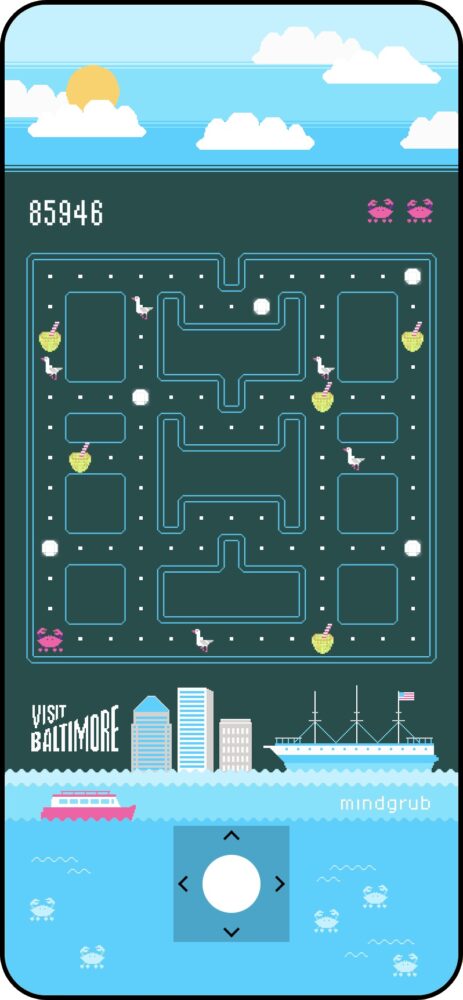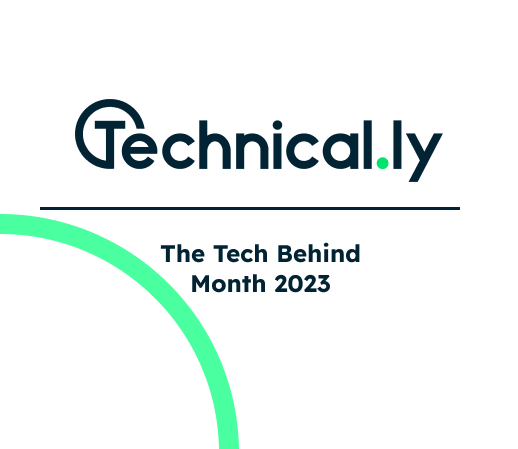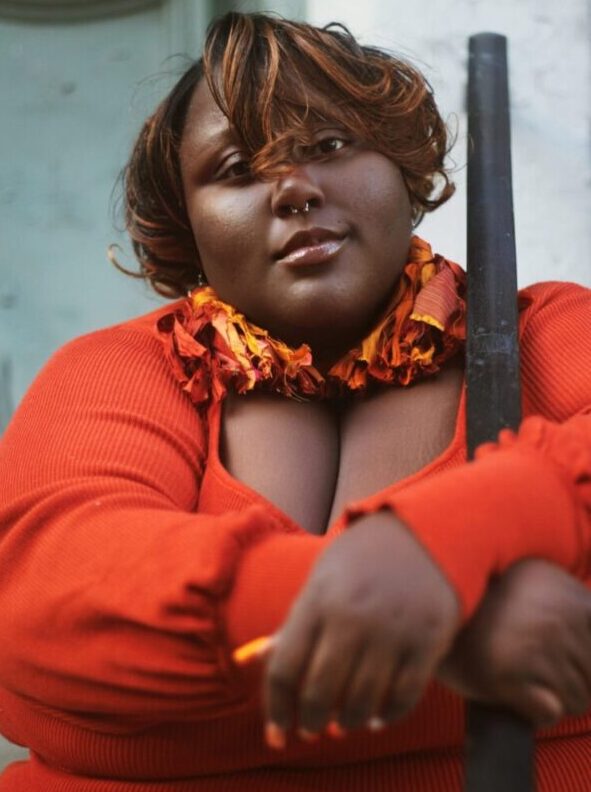Mindgrub Technologies is no stranger to bringing creative collaborations to life. Its most recent partnership at this intersection started with outreach from Visit Baltimore, the city’s quasi-public tourism agency.
This recent teaming-up resulted in a new 8-bit-style video game that debuts at a snack bar-type booth during VidCon Baltimore, which takes place through Sunday at the Baltimore Convention Center. Bridget Weininger, Visit Baltimore’s senior director of marketing for trade and experiential, said that both collaborators’ teams worked on the game throughout the past few weeks.
“When we set out to create a Visit Baltimore game, we reached out to our website partners at Mindgrub to explore the possibilities of creating a retro-themed video game to debut at VidCon Baltimore,” she said via email. “Our teams have been collaborating over the past several weeks to develop the game’s design, which includes brainstorming the concept, selecting Baltimore icons to feature, writing copy and actually building the game. We settled on an ’80s-inspired video game where players take on the roles of crabs, trying to avoid birds in the Harbor with the goal of enjoying Baltimore snacks like the iconic lemon stick.”
Visit Baltimore aims for VidCon attendees to engage with the game and discover more about Baltimore as a travel destination.
“The game, as well as VidCon itself, incorporates a social media component,” she said. “Therefore, we encourage players to share their high scores and tag @visitbmore on social media. Our aspiration is that the game, coupled with social media interactions, will inspire players to delve deeper into Baltimore, enticing them to return and explore more in the future.”
The game is also available online.
The development timeline
Both Weininger and the team at Mindgrub — including Group Creative Director Meagan Petri, CTO Jason Michael Perry and Agency Account Director Melissa Canet — told Technical.ly via email that Visit Baltimore initially approached Mindgrub about the game.
“The Visit Baltimore team had reached out to us about this project in June, yet we were only able to commence work in mid-August, providing us with approximately six weeks to complete the project,” the trio said in a joint statement. “We engaged in discussions with the client about potential design approaches before initiating the project, recognizing the necessity for flexibility and collaboration to ensure the timely completion of the final product. Given the tight timeline, we had to compromise on the complexity of the game’s functionality. For this initial iteration, our focus was on keeping everything as simple as possible.”
Okay, but what is 8-bit?
Eight bits was the maximum word-size capacity of most computers used in the early 70s and 80s. We no longer have such “constraints,” according to the Mindrgrub team, as most modern desktop computers have 64-bit capabilities.
“The 8-bit graphic style originated from computational constraints of early gaming systems like the NES and Atari,” the aforementioned Mindgrub leaders told Technical.l.y. “What was only natural in the 1980s required a lot of workarounds in 2023 to disguise our modern tech as an authentic retro experience.”

A rendering of Visit Baltimore and Mindgrub’s game. (Courtesy Mindgrub Technologies)
Developing and debuting an 8-bit game in 2023
Utilizing collaborative design tools, motion design and visual effects software, along with animation libraries, Mindgrub and Visit Baltimore successfully introduced their video game featuring harbor birds and lemon sticks to VidCon attendees on Friday. Despite employing modern development tools, the game exudes a visual nostalgia reminiscent of the games from the 70s and 80s. Mindgrub employed a variety of modern software, platforms and other tech components to render this game in the 8-bit style.
“We employed vector shapes to mimic a low-resolution pixel grid and crafted animated sprites using a combination of Figma, After Effects and Lottie,” the three leaders said. “From a development perspective, we aimed to maintain a lightweight framework. The webpage is constructed using straightforward HTML, CSS and JavaScript. While we did utilize the Lottie web player for animated sprites (the individual interactive characters), Mindgrub custom-built the entire ‘game engine’ using modern JavaScript, without relying on frameworks like Vue, React, or Angular. While such technologies make sense for larger applications, they would have introduced unnecessary complexity to this game.”
This approach helped keep file sizes relatively small by today’s standards, although the overall game is considerably larger than the original 8-bit games.
“For instance, the original Pac-Man was only 24 kilobytes,” the leaders said. “In our game, the map and sprites alone amount to almost 21 KB. The total weight of our game is approximately 170 KB. Again, this is not substantial by modern standards, but it illustrates how contemporary systems perform significantly more computational work to achieve similar results.”
If the thrill of winning a game isn’t sufficient, Visit Baltimore has also joined forces with a local purveyor of sweets, Nina’s Cookie Explosion, to offer exclusive Baltimore-inspired flavors at the booth. Top game performers can indulge in options such as crab chip, snowball and lemon stick cookies.
Learn more about and buy tickets for VidCon

This editorial article is a part of The Tech Behind Month of Technical.ly’s editorial calendar.
Before you go...
Please consider supporting Technical.ly to keep our independent journalism strong. Unlike most business-focused media outlets, we don’t have a paywall. Instead, we count on your personal and organizational support.
Join our growing Slack community
Join 5,000 tech professionals and entrepreneurs in our community Slack today!

The person charged in the UnitedHealthcare CEO shooting had a ton of tech connections

From rejection to innovation: How I built a tool to beat AI hiring algorithms at their own game

Where are the country’s most vibrant tech and startup communities?



